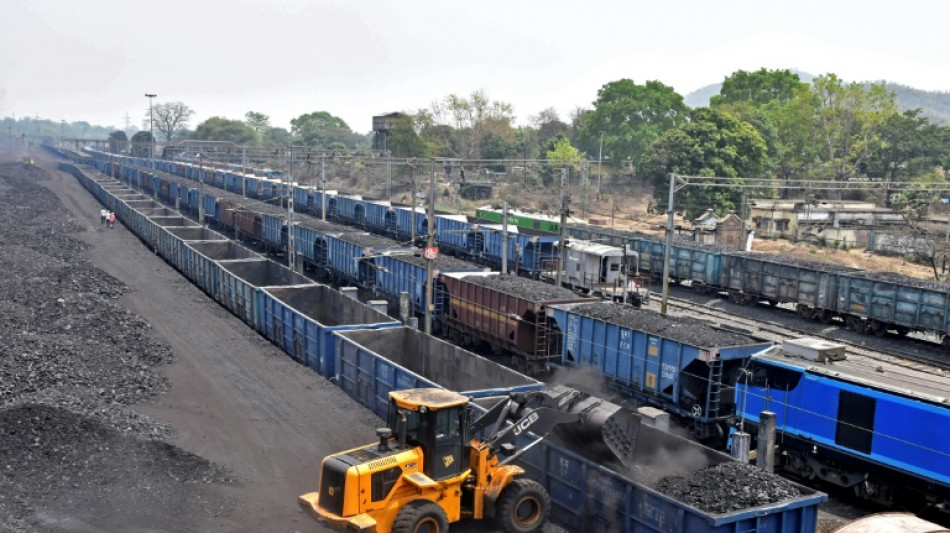

India relaxes environment rules for coal mines, citing heatwave
India has relaxed environmental compliance rules for coal mines seeking to ramp up production as power outages exacerbate a sweltering heatwave, a government notice showed.
Coal makes up more than two-thirds of India's energy needs, even as unseasonably hot weather illustrates the threat from climate change caused by burning fossil fuels.
Soaring temperatures have prompted higher energy demand in recent weeks and left India facing a 25-million-tonne shortfall at a time when coal spot prices have skyrocketed since the start of the year.
In a letter dated May 7 seen by AFP, the Environment Ministry said it has allowed a "special dispensation" to the Ministry of Coal to relax certain requirements -- like public consultations -- so mines could operate at increased capacities.
The relaxation comes after it received a request from the Ministry of Coal "stating that there is huge pressure on domestic coal supply in the country and all efforts are being made to meet the demand of coal for all sectors".
Coal mining projects previously cleared to operate at 40-percent capacity may now increase capacity to 50 percent without undertaking fresh environment impact studies, the authority said.
The letter coincided with the government launching a new scheme last week to lease abandoned state-owned coal pits to private mining companies, assuring them of fast-track environment approvals.
"The Ministry of Environment and Forests understands that they need to cut out the red tape," coal ministry official Anil Kumar Jain said at the launch event Friday.
The government hopes to woo private mining giants -- like Vedanta and Adani -- to revive more than 100 dormant coal mines previously deemed too expensive to operate, using new technology and fresh capital.
- Coal needs set to double -
India needs a billion tonnes of coal annually to meet its current domestic demand.
Most of its needs are met by domestic producers, with a record 777 million tonnes mined in the fiscal year to the end of March.
The shortfall is imported from countries like Indonesia, Australia and South Africa.
The government says it plans to increase domestic coal production to 1.2 billion tonnes in the next two years to support a post-pandemic economic recovery.
Despite a commitment to increase its renewable energy capacity to 175 gigawatts by 2022 and 500 gigawatts by 2030, Coal and Mines Minister Pralhad Joshi said Friday that India's coal needs are set to double by 2040.
A renewed focus on accelerating coal production risks India missing Prime Minister Narendra Modi's COP26 commitment to meet 50 percent of energy demand through renewable energy by 2030, according to experts.
The world's third-biggest carbon emitter, already home to 1.4 billion people, is projected by the UN to become the planet's most populous nation by the middle of the decade.
C.Griffiths--MC-UK




